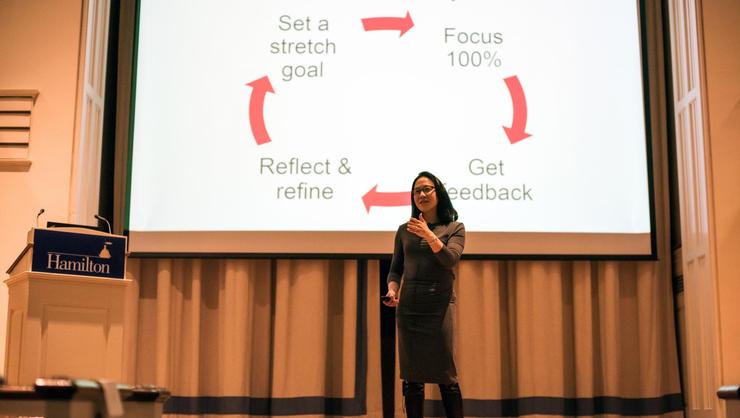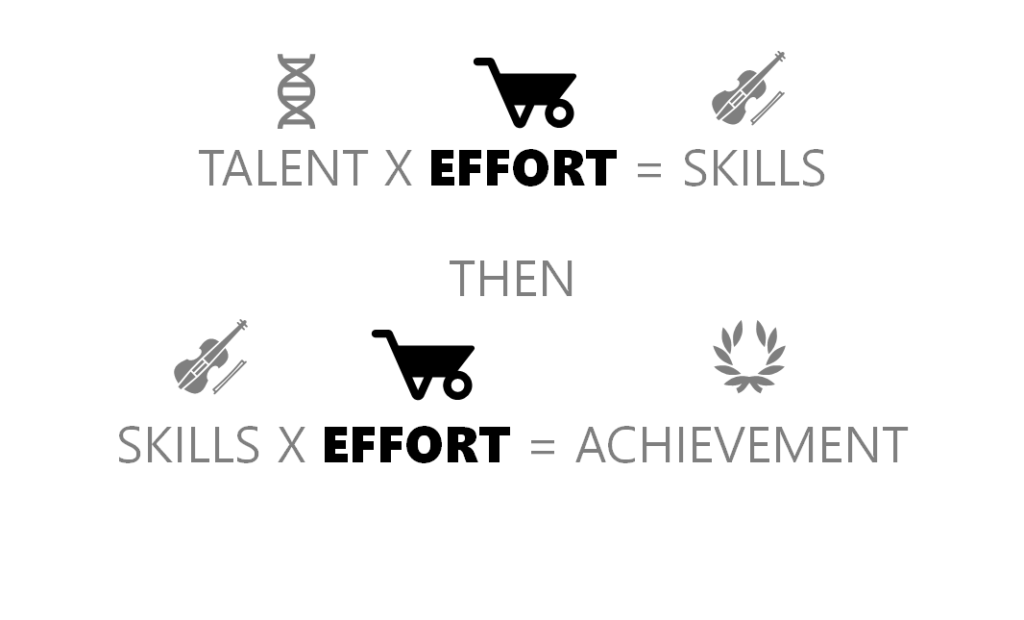The Adversity Advantage: How to Use Mental Toughness to Triumph Over Hard Times
In life, most people want a variant of the following:
- A great social life
- Excellent physical health
- Doing productive and mentally stimulating work
- A life of meaning/having an impact on the world
- Amazing interpersonal and romantic relationships
- Varying degrees of financial stability and independence
However, many people don’t have these things.
Because here’s the reality:
The people who achieve these things and those who don’t have the same goals.
The goals don’t separate winners and losers, actions do.
And many times? There will be a level of adversity you have to go through ranging from uncommon to very common and everything in between, depending on your own unique life situation.
Adversity is woven into the backdrop of life.
And since it is, you’ll need some degree of mental toughness to get all the way through to the end.
This article is going to give you a definitive guide to developing mental toughness in your own life so you can use adversity to rise even higher. It’s also going to give you:
- What adversity is and why it is necessary
- What mental toughness is and why its necessary
- How pain and exertion shape the mind
- The components of mental toughness
- What the psychology says about grit and mental toughness
- How you can use adversity to fuel your grit and mental toughness
What is Adversity? Why is It Necessary for Growth?

Adversity is defined by the Merriam-Webster English dictionary as:
a state or instance of serious or continued difficulty or misfortune.
This is a very simple definition that may even be underselling it. Adversity is something you feel in your bones.
The struggle where you grit your teeth and dig into your soul.
The forging where you undergo the pain of transformation.
The wave after wave of seemingly unending punishment.
The negativity burning your mind to a crisp.
So yeah, that definition is selling it short.
But adversity is the forge to develop yourself.
The Psychological Framework: How Adversity Shapes the Mind
Adversity doesn’t just build emotional resilience. It literally rewires your brain.
Neuroplasticity proves your brain adapts to stress. When you face difficulty and push through, new mental circuits form. You become more focused, more disciplined, and more durable.
We live in a world where comfort is abundant. But that’s made men weaker. The Comfort Crisis is real—dopamine overload, entitlement, and a general vibe of “softness” pervades modern society.. People are more fragile than ever. And it’s eroding us from the inside out.
But here’s the key: the brain loves adversity—if it’s framed correctly.
Voluntary hardship triggers dopamine and reward systems in a far more lasting way than cheap pleasures ever could.
Struggle = depth. Pleasure = fleeting. The brain knows the difference
What would happen…?
Imagine if you lived a life of complete comfort. Everything was provided for you.
You never had to feel pain, you never had to work, all your bills were paid, you never ran out of food, you never had to leave the house, everyone you ever loved and cared for had nothing ever bad happen to them, the sun was shining every single day, puppies and fluffy animals gathered outside of your house every day, blah, blah, blah, blah.
Just a narcotized existence where everything is fun! fun! fun! happy! happy! happy! all the time. 🤮
That would be pretty fucking boring, wouldn’t it?
You’d be alive but not really…living.
Don’t get me wrong, I want the world to be better than it is now…but I also acknowledge we don’t live in a utopia.
Things will happen. Things must happen.
If you want to take it from a metaphysical point of view, you can even say you were given your own unique life circumstances to learn lessons and eventually break the karma of several lifetimes. You don’t have to believe this, nor is this article about that – but, you cannot deny that every situation in your life is a chance to level up.
Adversity is a natural law. Just like gravity, it’s always there. And the sooner you stop resisting it, the sooner you can learn to use it.
Proof of the Forge: Men Molded by Adversity
Throughout history, the greatest men were shaped in the furnace of hardship and pain:
- Samurai – Followed the Bushidō code, embracing death, hardship, and mastery over self.
- Nelson Mandela – 27 years in prison hardened his resolve and deepened his character as a leader.
- Norse Vikings – Endured freezing climates, long voyages, and constant battle. Toughness was survival.
- Winston Churchill – Weathered depression, defeat, and wartime catastrophe to rally a nation during WWII.
- Malcolm X – Rose from street crime and prison to become a disciplined, strategic, and world-changing activist.
- Spartans – Trained from childhood in pain tolerance, discipline, and self-denial. Weakness was eliminated early.
- Marcus Aurelius – Led through plague, war, and betrayal—while writing Meditations to discipline his own mind.
- Seneca – Lived through exile, political threats, and family tragedy, yet developed stoic frameworks still used today.
- Steve Jobs – Fired from his own company. Came back and led one of the most iconic comebacks in business history.
- Alexander the Great – Conquered most of the known world before 30, navigating betrayal, famine, and brutal terrain.
- Michael Jordan – Cut from his high school team, came back to become one of the greatest competiors in sports history.
- U.S. Marine Corps – Built on mental toughness, structured suffering, and an honor code that prioritizes mission above self.
- Jocko Willink – Former Navy SEAL Commander turned leadership coach—preaches “Discipline Equals Freedom”. Forged in combat.
- David Goggins – Overcame obesity, abuse, poverty, and Navy SEAL Hell Week (three times) to become a living icon of mental toughness.
- Frederick Douglass – Born into slavery, taught himself to read, escaped bondage, and became one of the greatest orators in American history.
- French Foreign Legion – Recruits from all over the world, often outcasts or outlaws, reshaped into elite warriors through relentless discipline.
All of these men, all of these archetypes, come from diverse background and areas of the globe.
All of these men are all legendary because of one common denominator: adversity.
So I hope it’s clear that adversity is pretty much required to be a man of value and a man worth looking up to.
But you can’t just go through adversity for adversity’s sake. You need mental toughness.
What is Mental Toughness?
Mental toughness, mental resilience, grit, perseverance, “inner fire”, etc. is known by many names and shows up in many different cultures, time periods, and societies across the globe.
It is an intangible quality possessed by those who were/are considered legends and heroes.
Even in modern society, with all of our conveniences and comforts – it is impossible to achieve anything worth mentioning without some degree of mental toughness.
Without grit and mental toughness, you’ll lack the edge you need to go toe-to-toe in our highly competitive society.
Mental Toughness and Masculinity
Even though Unstoppable Rise is a resource for all people, I do take a masculine slant to most issues. As such, it’s worth touching upon why mental toughness is important if you’re a man.
As a man, you will be looked upon to have this mental toughness in varying degrees. Even in our relatively egalitarian society, you will be held to a different standard as a man by your peers and your family.
You’ll be a de facto leader, expected to “take point” in various situations. For example, when something goes “bump” in the night, who’s expected to go check it out? The man or the woman?
When the family is going through a tough time, who’s expected to be “the rock” of the family? The man or the woman?
Many men think mental toughness is just about being a “solid rock” but instead, think of mental toughness as a multipurpose Swiss army knife in your back pocket with “defend” and “attack” aspects.
Mental toughness is useful when things happen to you (defend):
- Your car breaks down in the middle of nowhere
- You get laid off from your job
- You get physically injured
Mental toughness is also useful when you want to happen to things (attack):
- Learning a new instrument
- Asking out that cute girl
- Giving a pitch to a board of investors for a new product (think Shark Tank)
So now that we’ve touched upon this aspect of grit/mental toughness, let’s move on to more tangible psychological findings.
Mental Toughness, Grit, and Psychology: What the Research Says

If you’re never able to tolerate a little bit of pain and discomfort, you’ll never get better. – Angela Duckworth, Grit: The Power of Passion and Perseverance
Even though mental toughness is an intangible quality, it has been quantitatively studied by in the area of performance psychology.
In various studies, mental toughness has been shown to have a marked effect on someone’s performance in any event across a wide dimension of fields and disciplines.
According to an article in Frontiers in Psychology, mental toughness is required for peak performance:
Negative life events, crises, challenges, and stressful situations constitute a large aspect of human experience and are often unavoidable… Mental toughness (MT) has been studied as an important individual difference factor that allows individuals to deal effectively with challenges and to persist under pressure. MT has its highest profile in sport, but its impact is now recognized in a wide range of other domains…
The review indicates that MT is a vital trait across various contexts such as education, the workplace, and the military. Emotionally, mentally tough individuals are able to maintain greater levels of control and confidence under stressful situations, which might lead to better psychological well-being. Cognitively, they exhibit greater inhibition which allows them to commit to current tasks…These associations suggest that MT carries substantial implications for learning, academic results, work performance as well as a range of other achievement outcomes.
Digging into the Mental Game of Grit
The most recent piece of research-heavy performance psychology to hit mainstream awareness is Angela Duckworth’s Grit: The Power of Passion and Perserverance.
Angela Duckworth set out to answer the perplexing question of why seemingly talented people are outpaced by their less talented peers.
The result? The less talented people had more “grittiness” and put forth the effort to become excellent at the field or activity in question.
This is her response to when someone asks on how to develop valuable skills:
“…there are no shortcuts to excellence. Developing real expertise, figuring out really hard problems, it all takes time―longer than most people imagine….you’ve got to apply those skills and produce goods or services that are valuable to people….Grit is about working on something you care about so much that you’re willing to stay loyal to it…it’s doing what you love, but not just falling in love―staying in love.”
The Relationship Between Grit and Life Outcomes

If you want to achieve success, you’ll have to provide value to others. The only way to provide value is to develop a skill in something.
If you want to provide extraordinary value, you’ll need to be in the upper echelons for that skill or combine with other skills.
The journey between bottom-rung novice and enlightened master involves triumph and milestones but also a staggering degree of frustration, losses, and long periods of seemingly no progress.
You’ll need grit and mental toughness to make it through.
Why?
Because grit and mental toughness create the capacity for sustained effort.
And according to Angela Duckworth, effort counts twice:
“Talent x Effort = Skills
Skills x Effort = AchievementTalent is how quickly your skills improve when you invest effort. Achievement is what happens when you take your acquired skills and use them. […] Effort builds skill. At the very same time, effort makes skill productive.”
Everyone has a base level of talent. This can be explained by genetic differences, but without getting too much in the weeds, this manifests in things such as “inclinations”.
The saying “he has a knack for it” or “she’s naturally gifted” explain this.
How you expand upon that talent is largely up to you. It’s possible to receive coaching and exposure, but your level of practice (effort) will largely determine how much skill you will build.
In Duckworth’s model, someone who has half the natural talent of someone else will have to put 4x the effort to build the same level of skill.
However, real life isn’t so cut and dry and there’s no real way to tangibly measure base level of talent in most areas (such as chess acumen, social intelligence, and leadership).
Picasso or Mozart could have been exposed to a paintbrush or piano respectively, but if they did not put the effort to develop their skills, their base level of talent means nothing.
1000 x 0 is still 0.
Once you’ve put in the effort to develop skills, you still need to put effort again to achieve a concrete objective.
You don’t win Wimbledon in tennis or get on the New York Times bestseller list by just being “good at tennis” or “good at writing”. No… you need hard, disciplined work to achieve these things.
You need to put forth the effort to be better than others and mostly importantly, your previous self in to come even remotely close anything resembling to achievement.
How to Develop Your Mental Toughness and Use Adversity to Your Advantage

Mental toughness and grit aren’t things that intrinsically known to us in a skill development sense.
If we want to become mentally resilient and “superhuman” these are things we have to develop. Like I said earlier, adversity literally requires the brain. And luckily, your brain is the most adaptable organ on the planet.
Knowing that here’s some quick ways to quilt mental toughness into the patchwork of your life philosophy.
Mentally tough people do hard things.
This is the “attack” aspect of mental toughness.
People who exemplify this aspect stretch their comfort zone every day and aggressively seek out improvement.
Being mentally tough inherently involves the risk of getting hurt in some form or fashion and mentally tough people aren’t afraid of a wounded ego or damaged self-image as long as it serves some higher goal or purpose.
They are willing to experience temporary physical, emotional, or mental pain, embarrassment, judgment, and all sorts of negative emotions in order to attain and press on towards an ideal that may not even currently exist in a concrete form.
If you want to become mentally tougher, you’ll need to stack up the wins in this area.
A good way to do that is to keep a notebook or a journal of things you made progress in each day.
Ask yourself: “how did I battle against the tendency to remain comfortable today?”
Mentally tough people reframe “pain”
To many people, “pain” is just another thing which should be avoided at all costs. This “pain” usually has nothing to do with actual pain (meaning something is wrong), rather is often just the exertion that comes from effort at the edge of one’s capacity.
The average person’s “pain” tolerance in modern society has been dulled by the conveniences offered to us in modern society and is often part in parcel with escapism.
People who are mentally tough understand how to reframe this pain and accept it as the down payment for getting better in life.
Mentally tough people surround themselves with other mentally tough people
People who are pushing their limits in life typically don’t want to hang around others who aren’t doing the same. That’s not to say that these people will cut these people out of their life entirely, but you are the average of the people you hang around most.
Therefore, these people do their best to surround themselves with people who are going places in life so they can bounce ideas off of them, get motivation and encouragement, and experience what it’s like to win together.
After all, iron sharpens iron.
Mentally tough people “do it anyway”.
It’s easy to show up for an hour, a day, or even a week, but how does your performance in an area look over the span of months or even years?
There will be days where you don’t feel like doing X, Y, or Z.
What do you do?
Do you show up anyway? Do you still do it?
If you do, then you’re displaying an element of mental toughness.
Everyone who is seen as great had many days where they just didn’t feel like putting in the effort to increase their skills or achieve things.
Putting forth the effort despite the resistance is what separates a professional from an amateur.
Mentally tough people go the extra mile.
Showing up to work when you “don’t feel like it” is not an example of mental toughness.
Work is required as a standard of survival, so you don’t get a pat on the back from just doing the standard.
If you go above on a beyond a project at work or do a project every day outside of work in addition to your survival responsibilities, that’s when you get your pat on the back.
The more you go the extra mile, the more you display and attain mental toughness.
Mentally tough people have an abundance mentality.
Depending on how your mind is programmed, you will see abundance or scarcity in the world.
The default of human biological programming is towards negativity and to see lack but you can transcend this programming and develop an abundance mentality.
This will not happen on its own. An abundance mentality is hand in hand with optimism/positivity bias and it’s something that must be developed.
Developing this abundance mentality to see silver linings, opportunities, and other good things does take work. The work to develop that is one indicator of mental toughness.
Mentally tough people are self-reliant.
Self-reliance is the act of leaning on yourself to accomplish key objectives and goals instead of waiting around for others to come and do it for you.
Self-reliance is at the cornerstone of mental toughness and is impossible to develop without it.
Developing some form of self-reliance will allow you to push through the dry and boring periods of skill development and allow you to further increase your abilities, which will make you more mentally tough. It’s a self-perpetuating cycle.
Mentally tough people use negative motivation to their advantage.
“Negative motivation” is exactly what it sounds like. It is using some form of negative stimuli to start the wheels in motion towards action.
Negative motivation almost always involves pain or discomfort of some kind and can tip towards shutting down action in the absence of individual grit.
Those who have grit and mental toughness are able to use negative motivation to their advantage, instead of their detriment, further tightening their ability to be mentally resilient.
Conclusion + Wrapping Up
As a descendant of the most resilient and hardy human beings in history, mental toughness is your birthright.
You are being cheated out of it by the inherent ease in modern day society and the pervading belief that you don’t need to put forth effort to achieve things.
It’s all about “luck”, it’s all about “talent”. Wherever you are in life is wherever you are in life and there’s not much you can do about that.
I’d recommend tuning that out.
There isn’t a situation where less productive effort in a direction would be preferable to more and everyone knows this on an intuitive level.
Develop the mindset of giving everything you do a solid effort.
Even if you come up short, it won’t be because of your lack of effort or mental toughness.
More Resources to Develop Your Mental Toughness and Use Adversity to Grow
- 4 Firecracker Strategies to Use Negative Motivation to Become More Powerful
- Death Ground Strategy: How to Propel Your Self-Development to New Heights
- Hard Times Create Strong Men: Understanding (and Taking Advantage of) the Eternal Cycle
- Mental Warfare: How to Survive the Mind’s Battleground
- The Art of Starting (Over) From Nothing
Frequently Asked Questions About Adversity & Personal Growth
1. What is adversity and why is it important?
Adversity refers to challenges, hardships, and obstacles that test your mental, emotional, or physical strength. It’s important because it forces growth—by navigating difficulty, you become more resilient, disciplined, and capable.
2. How does adversity lead to personal growth?
Growth doesn’t come from ease—it comes from resistance. Adversity stretches your limits, forces you to adapt, and builds qualities like grit, mental toughness, and emotional control.
3. What are examples of adversity in real life?
Physical training, financial struggles, rejection, failure, injury, heartbreak, betrayal, isolation, or setbacks in your career or mission. Anything that puts pressure on you to grow in some form–is adversity.
4. How do I develop a mindset of mental toughness?
You train it like a muscle. Start embracing small challenges daily: cold showers, tough workouts, deep work, solitude. Reframe discomfort as growth. Learn from pain instead of avoiding it.
5. What is anti-fragility and how does it apply here?
Anti-fragility is a concept brought to popular consciousness by philosopher and game theorist Nicolas Nassim Taleb.
Simply put, it’s a concept where systems improve their reliability and resilience under stress. Applied to men: you are a “system”. When you face challenge and pressure, you don’t just survive—you get stronger, sharper, and more resilient due to the principle of adaptation.
6. Is voluntary adversity as effective as real-world hardship?
Yes. Training yourself under chosen hardship prepares you for chaos. Voluntary struggle (fasting, training, discipline) builds the same mental framework as reactive struggle—only with intention.
7. Why do modern people avoid adversity?
Because comfort is everywhere. Dopamine is cheap. Distractions are abundant. There is no (immediate) gain for choosing to do hard things. But in the long-term, avoiding struggle makes you fragile and unable to assert yourself in other areas.
The modern world rewards the person who actively pursues discomfort and builds strength with renewed self-esteem, self-discipline, self-efficacy, impact, better relationships, more money, better health, and a more vibrant life overall.
Now, I want to hear from you. How has mental toughness helped you in your life? How can you develop more of it? Let me know in the comments:

Awesome Read!
Great article!
Very good. I’m always upset with people who say “he got luck”. These people seem to be blind to the effort put to achieve something and, actually, they disregard the merits of the “lucky” one. If they say this about me, I consider more like personal offense than a compliment.